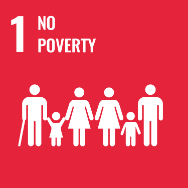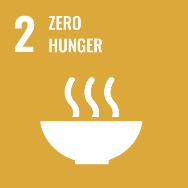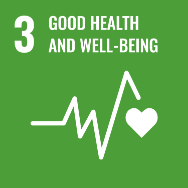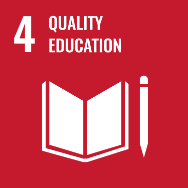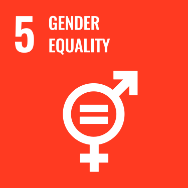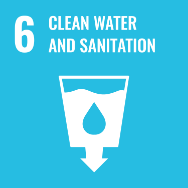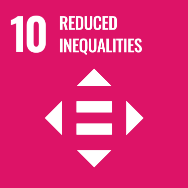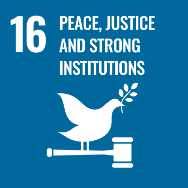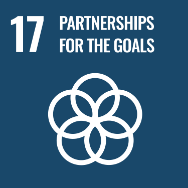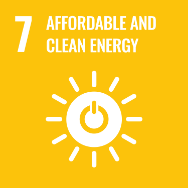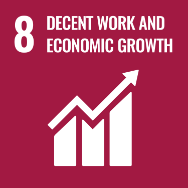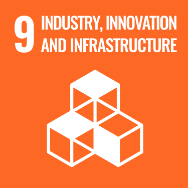One for All, All for One
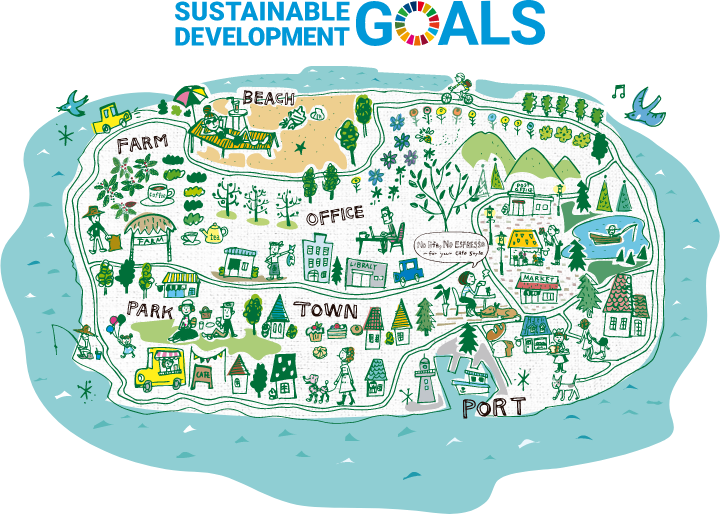
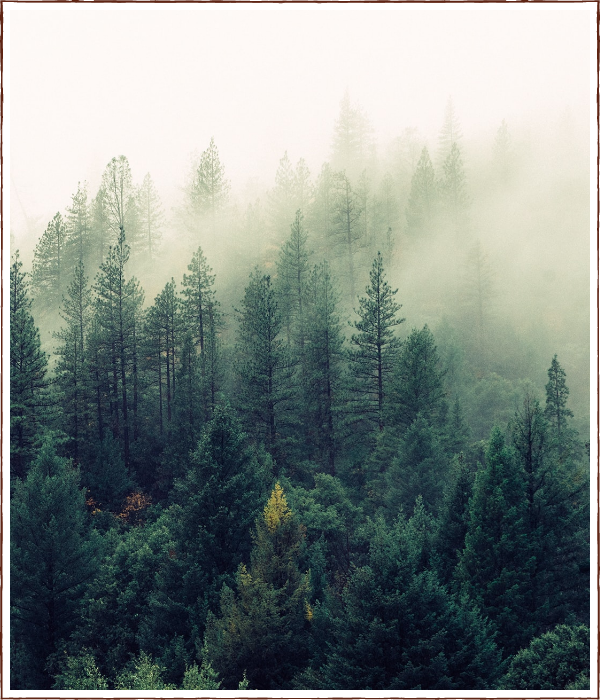
Words that communicate the spirit of rugby “One for all. All for one.”
The world faces challenges including environmental issues, discrimination, poverty, and human rights violations. The UN’s Sustainable Development Goals (SDGs) outline a plan and goals for pooling the world’s knowledge to resolve these issues by 2030. Specifically, the SDGs set forth 17 shared global goals for creating a better world that we can down to future generations by enabling healthy, fulfilling lives in a way that leaves nobody behind while protecting our planet’s life-sustaining environment.
As a producer of food, which is essential for life, what can we do?
Taking inspiration from the slogan “One for All, All for One,” we started with the familiar, everyday goals of taking care not to waste water and to turn off lights when not in use.
We then undertook a detailed reconsideration of our entire value chain, from procurement of raw materials to production, sale, consumption, and renewable energy. Next, we identified a series of issues that we believe need to be addressed in order to build a sustainable “best balance” between people and the environment. We continue to ask ourselves what we can do right now as each of us plays his or her role so that we can move forward one step at a time towards each objective and goal.
We’re confident that each of those steps will lead us toward a richer and more fulfilling future.
Supporting life, starting with a single coffee bean
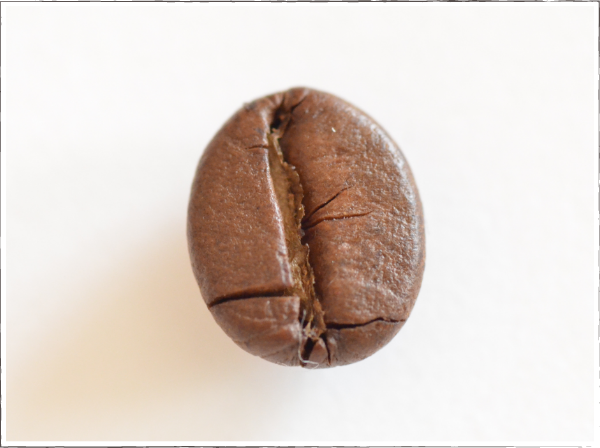
The coffee beans we use as raw materials to produce our primary products are shipped from faraway Africa and South America. By purchasing beans continuously at fair prices in accordance with the Rain Forest Alliance, we support producers’ livelihoods and help protect the environment in which they’re grown.
We apply the same approach to the work environment and health management at our own facilities. We believe that maintaining a vibrant workplace is the best way to produce products that will be loved by all.
We also work with the local community and cooperate with food bank programs. Through encounters with people and life, for example by providing products to children who enjoy sports and fostering learning in partnership with academia and government, we strive to contribute to growth.
Protecting and nurturing the environment, starting with a single droplet of water
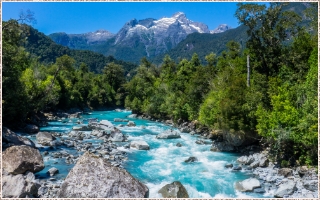
Located on the shores of Lake Biwa, the Lake Biwa Factory is our production facility. We carefully filter, disinfect, and efficiently use the natural bounty of Mt. Hiei in the form of subsoil water. We also stand ready to supply this water to nearby residents in the event of a natural disaster.
We’ve reconstructed our production line in a way that takes the surrounding environment into consideration so that we can pass this rich natural setting on to the next generation, complete with its clean water and majestic mountains. Because they are known to have a pronounced deodorizing effect due to the action of activated charcoal, grounds remaining after coffee extraction are used to treat urine and feces from grazing cattle. By using this resource to improve soil and then returning it to the soil as fertilizer instead of treating it as waste, we’re realizing a cyclical environmental protection system. And by using recycled or recyclable materials to package our products, we’re working to reduce CO2 emissions and lower the environmental footprint of our operations.
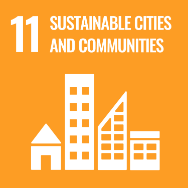
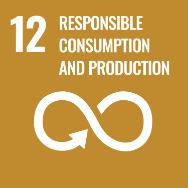
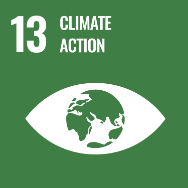
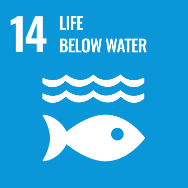
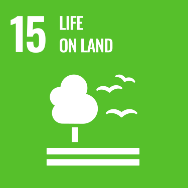

Located on the shores of Lake Biwa, the Lake Biwa Factory is our production facility. We carefully filter, disinfect, and efficiently use the natural bounty of Mt. Hiei in the form of subsoil water. We also stand ready to supply this water to nearby residents in the event of a natural disaster.
We’ve reconstructed our production line in a way that takes the surrounding environment into consideration so that we can pass this rich natural setting on to the next generation, complete with its clean water and majestic mountains. Because they are known to have a pronounced deodorizing effect due to the action of activated charcoal, grounds remaining after coffee extraction are used to treat urine and feces from grazing cattle. By using this resource to improve soil and then returning it to the soil as fertilizer instead of treating it as waste, we’re realizing a cyclical environmental protection system. And by using recycled or recyclable materials to package our products, we’re working to reduce CO2 emissions and lower the environmental footprint of our operations.
Fostering the next generation of technological innovation, from each individual’s sweat
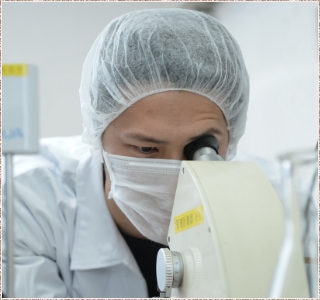
“If it doesn’t exist, make it.” Our journey began when we designed our own column extractor to use in the manufacture of coffee extracts. We’ve created a variety of products in line with customers’ needs as a coffee extract pioneer in Japan. Looking beyond the Japanese market, we’ve also begun developing products that align with international tastes and religions. We’re dedicated to producing safe products that inspire peace of mind in the hope that people from all countries will be able to enjoy the tranquility that a cup of coffee can bring.
Coffee grounds left over from the manufacturing process aren’t just recycled as fertilizer. We use a special cut profile to maximize the delicious flavor of the coffee beans we process, and that profile yields grounds that are larger and more porous than usual. These grounds are attracting attention as a new material with exceptional deodorizing, purifying, moisturizing, and insulating effects. We’ve begun developing new products that make the most of those effects.
Furthermore, we’re conducting research into the creation of renewable energy to replace natural gas and coal. Our goal is to harness state-of-the-art technology to enable the next generation to lead better, more environmentally friendly lives.
The single-minded enthusiasm of our founding days continues to guide us today.



